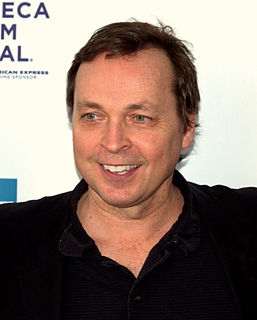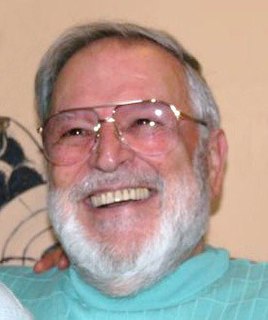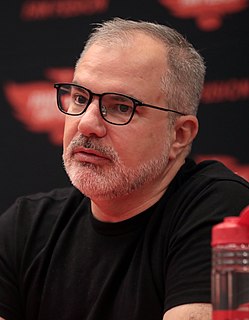A Quote by Bobby Farrelly
I think the last one would have to be The Godfather because it was such a powerful story. There was lots of violence in it but I could take it because I thought there was a reality to it. It wasn't gratuitous, it was just these guys story.
Related Quotes
Literature is an aspect of story and story is all that exists to make sense of reality. War is a story. Now you begin to see how powerful story is because it informs our worldview and our every action, our every justification is a story. So how can story not be truly transformative? I've seen it happen in real ways, not in sentimental ways or in the jargon of New Age liberal ideology.
A lot of people think that they are really cool because they don't outline. In my writing group, they would say, "I will never outline. I let the characters take me." C'mon, man - I outline the story, but it's only like one page. It's a list of possible reversals in the story, like things where everything will just change because of this certain reveal or this certain action. Then I start really digging into the character because, to me, I don't care what the story is.
And if I'm guilty of having gratuitous sex, then I'm also guilty of having gratuitous violence, and gratuitous feasting, and gratuitous description of clothes, and gratuitous heraldry, because very little of this is necessary to advance the plot. But my philosophy is that plot advancement is not what the experience of reading fiction is about. If all we care about is advancing the plot, why read novels? We can just read Cliffs Notes.
Vera said: 'Why do you feel you have to turn everything into a story?' So I told her why: Because if I tell the story, I control the version. Because if I tell the story, I can make you laugh, and I would rather have you laugh at me than feel sorry for me. Because if I tell the story, it doesn't hurt as much. Because if I tell the story, I can get on with it.
Non-violence is a very powerful weapon. Most people don't understand the power of non-violence and tend to be amazed by the whole idea. Those who have been involved in bringing about change and see the difference between violence and non-violence are firmly committed to a lifetime of non-violence, not because it is easy or because it is cowardly, but because it is an effective and very powerful way.
I think that people have to have a story. When you tell a story, most people are not good storytellers because they think it's about them. You have to make your story, whatever story it is you're telling, their story. So you have to get good at telling a story so they can identify themselves in your story.
When I was there at Marvel, everybody thought if you could draw well and you could do sensational panels, that you were going to be a success. The truth is that no matter how good or bad you are as a draftsman, if you can't tell a story, you don't last in comics. ...About halfway through my stay at Marvel, I realized I was being paid to tell a story, not do a drawing. That's why my stuff is always rather simple and uncomplicated compared to a lot of guys.
That's just me wanting that supernatural tool to tell a story and also not wanting to be restricted by reality, with how we're telling a tale, because we are a heightened reality on Hannibal. There is a larger-than-life quality to the storytelling when it gets into particulars. I like the idea of being able to dismiss reality, depending on if we can sell it as part of the story.
I think George R. R. Martin made fantasy grow up. He brought a level of reality into the storytelling where you realize the good guys don't always win and anyone can die, because that's how life works. Bringing that level of reality into the story I think forced the genre to mature in a lot of ways that it hadn't prior.





































